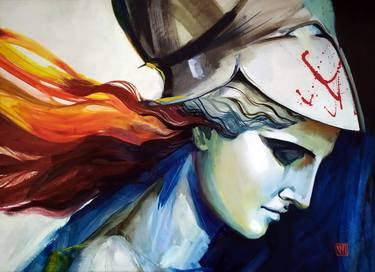NOTE: The version of The Odyssey I ordered the class is condensed, so some of the books have been taken out. Therefore, if you have a different edition, you don't have to read books (chapters) 2 & 3. We're just reading Books 1 and 4. The questions below are ONLY for those chapters/books.
Answer TWO of the following questions:
Q1: Why does Athena disguise herself as an old man and approach Odysseus' son, Telemachus, in Book 1? What is she worried about, and what does she want him to do? Does he know who she really is (or rather, do we know that he knows)?
Q2: At the beginning of the work, Zeus complains that "Mortals!...are always blaming the gods/For their troubles, when their own witlessness.Causes them more than they were destined for!" (2). From what you've read of the Greek myths so far, is this true? Are the gods blameless in victories and tragedies of humans, such as the Trojan War? Why do you think Homer has Zeus proclaim this, especially if it's not technically true?
Q3: Book 4 is fascinating in that it imagines Helen of Troy living back with her husband, Menelaus, after the Trojan War. How does the poem depict Helen at this stage of her life? Does this sound like the same woman who ran away from her husband and family in pursuit of love? Who started a war? Or is this closer to the way Sappho might have seen her? Why or why not?
Q4: Even though this is an epic poem, which tells a unified story, and not a series of love poems like Sappho's, why might Homer's work remind you of Sappho? What poem of Sappho's might fit into this work rather well and why? In other words, do you think Sappho might have been inspired by The Odyssey, or had a hand in writing it?

No comments:
Post a Comment